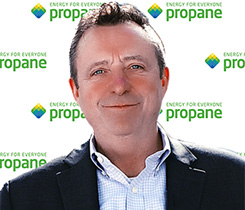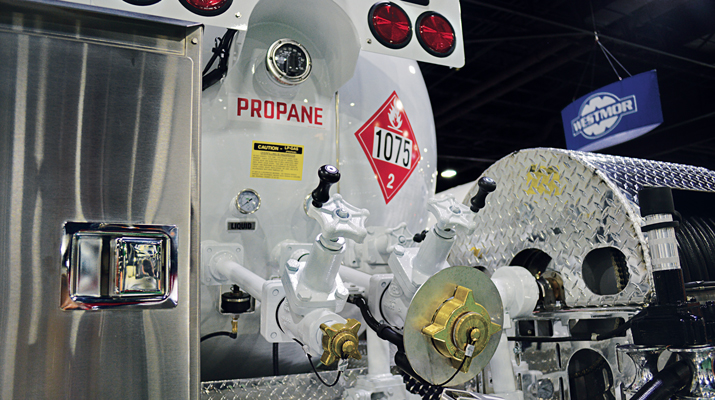Consider customer contracts that account for allocation situations
As I write this article, we are seeing the last remnants of a recent snowfall melt away outside my window.
Even in Wisconsin, snow in mid-April is somewhat unusual, although I have seen it as late as early May. But as we shake off the last days of this historically cold winter, we must take stock of lessons learned and what can be done to address problems that arose.
More than 30 states declared emergencies, which in some cases triggered the application of anti-gouging laws to the sale of propane. Allocation was in place in many parts of the country for substantial portions of the winter. In Wisconsin, allocation existed for about three months.
Many propane retailers were traveling well beyond their normal terminal pick-ups to get fuel. The price of fuel at the wholesale and retail levels increased dramatically, and the cost to transport that fuel from terminal to the retailer’s bulk plants also rose dramatically, as demurrage and trip charges for longer miles went up.
A lot has been written on various aspects of the issues raised by the winter. One is most pragmatic – the communication with the retail customer when force majeure or allocation is in place and the customer cannot get fuel or can only get limited amounts.
Force majeure is a period during which performance of a contract is not possible due to a disruptive event.
The retail contracts that work include language allowing for temporary nonperformance of a contract by the retailer in the event of force majeure or allocation. The language needs to be clear, concise and conspicuous. If this type of language is not in your customer contracts, I strongly recommend that you work with an attorney to add it.
Many customer contracts are for propane at a fixed price for a specified number of gallons. Typically that fuel needs to be purchased in the heating season from November to April.
If you also have a nonperformance provision for force majeure or allocation, you should address how fuel not purchased in the instant heating season is dealt with under these circumstances. A typical remedy is to credit the remaining fuel not purchased to the next year’s contract. Some contracts might allow for refunds of unused amounts, but this language can be tricky to draft, as most retailers make their contract purchases preseason based on fuel contracts they have with their customers.
A real point of concern that we saw this year is the lack of understanding by our customers of what was meant by force majeure or allocation. The best situation would be for neither of these options to occur during the heating season. But we all recognize that despite the best efforts of the industry in the past and going forward this perfect storm of prolonged extreme cold weather and limits in supply will likely recur. As an aside, the industry is working on ways to minimize the problems faced this past winter.
But retail marketers are well advised to take steps to communicate with customers in greater detail what is meant by force majeure and allocation in their contracts. What do these terms mean? What could cause either of these situations to arise? What are you doing to avoid these situations from arising? What steps can the customer take to avoid problems?
Yes, customers will complain if they have spikes in their propane prices from allocation or high demand. If customers run out of fuel, there will be unpleasant calls and problems. But preplanning to advise customers of possible shortages and steps they can take to minimize the chance of running out should be done before the heating season and again as a shortage begins to present itself over the horizon.
Keeping the customer happy means keeping them informed and providing them as much opportunity as possible to avoid running out of fuel. Preplanning and good communication with customers can go a long way to improving both.
John V. McCoy is with McCoy Leavitt Laskey LLC, and his firm represents industry members nationally. He can be reached at 262-522-7007 or jmccoy@MLLlaw.com.
















